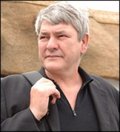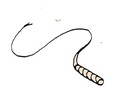Prison, murder, fork-lift trucks, whisky and milk.
/The more eventful life gets, the less time available to blog about the events. This tension is at the heart of blogging: running a well-crafted and frequently updated blog is best suited to a mildly depressed person who hasn't left their house for a month.
I, as you can probably tell from the long silence, have been cheerful, and out of the house.
Since last I posted, I have been in Her Majesty's Prison, Birmingham, performed at the Latitude Festival in Suffolk, passed a few days in a Buddhist retreat centre in Cavan, met up with old friends in Tipperary, Galway, Dublin, Bray, Kildare, London, and Berlin, had interesting conversations with cocaine smugglers, drunken novelists, monks, and marine biologists. I have been awarded a Monaghan GAA medal, been photographed lying on the pavement in front of the GPO on O'Connell Street, and invited to write articles, kiss strangers, and play football. I have peered into the bulk storage tank of a milking parlour, been handed a large Celtic Cross in a Leitrim pub (made by a senior IRA member while interned in the Curragh during World War Two, out of matchsticks taken from the floor of that pub and sent to him by his mother), and fed home-made treacle bread.
I have passed through shrine rooms, paddling pools and X-ray machines. I have looked up Damon Albarn's nose. I have chatted with the delightful James Franco (Harry Osborn in the Spiderman films). I have failed to answer several hundred emails. I have stagedived at three readings. I have read, written, and edited. I've had an article published. I have had a novel reprinted. I have been reviewed, interviewed, and body searched. I have lost my temper. I have brushed my teeth.
I have officially launched a novel in Filthy McNasties pub in Islington, signed hardbacks all day in a warehouse in Littlehampton, and tried to track down mysterious parcels that were sent to me in Berlin while I was away, and returned by Deutsch Post to their mysterious senders.
I have gone speeding in the tallest forklift truck in the world.
I have drunk strong whisky (Laphroaig quarter cask, 48% alcohol by volume when bottled, barrier filtered, single Islay malt), and used strong language. I've drunk milk, and spoken mildly.
I have picked a fantasy football team, and read the poetry of Matthew Sweeney, and of T. S. Eliot, and of Dr. Seuss.
Friends of mine have married, sold cattle, broken their noses, and given evidence in murder trials.
I have slept (but not enough, not enough) in tents, five star hotels and fields. On couches, floors, beds, futons, and grass.
I've watched the Atlantic advance up the beaches of Salthill, and liquidity retreat from the markets of the world.
I'll try to post something about some of it sometime but the future is arriving faster than I can process the past.


